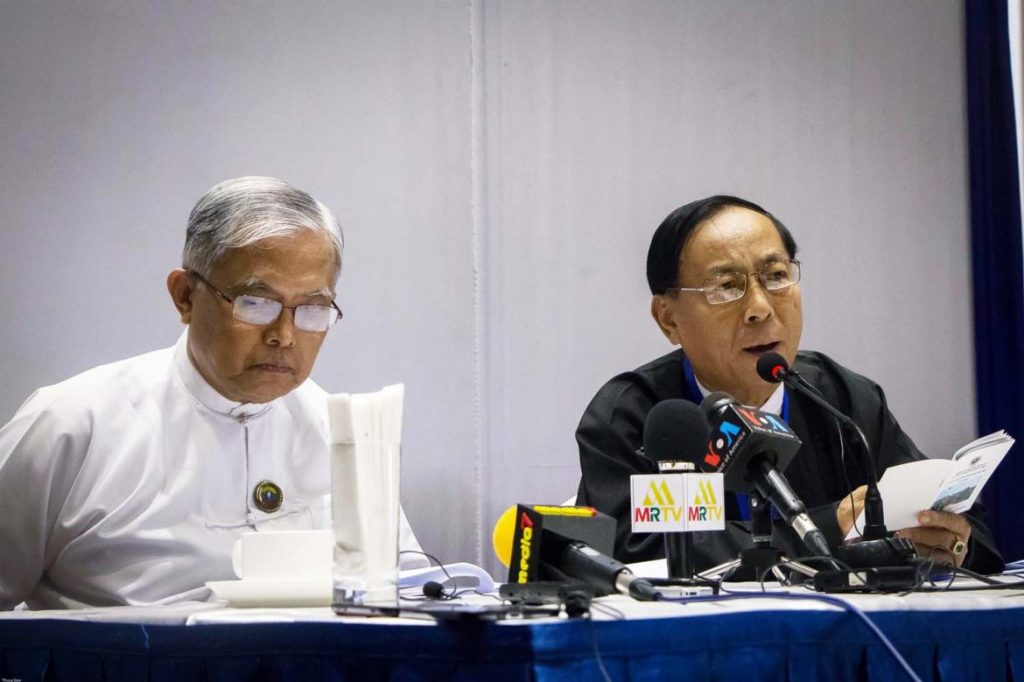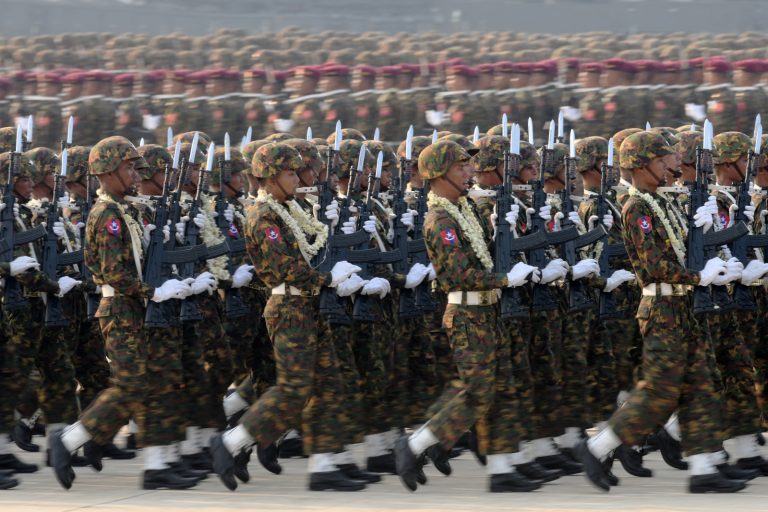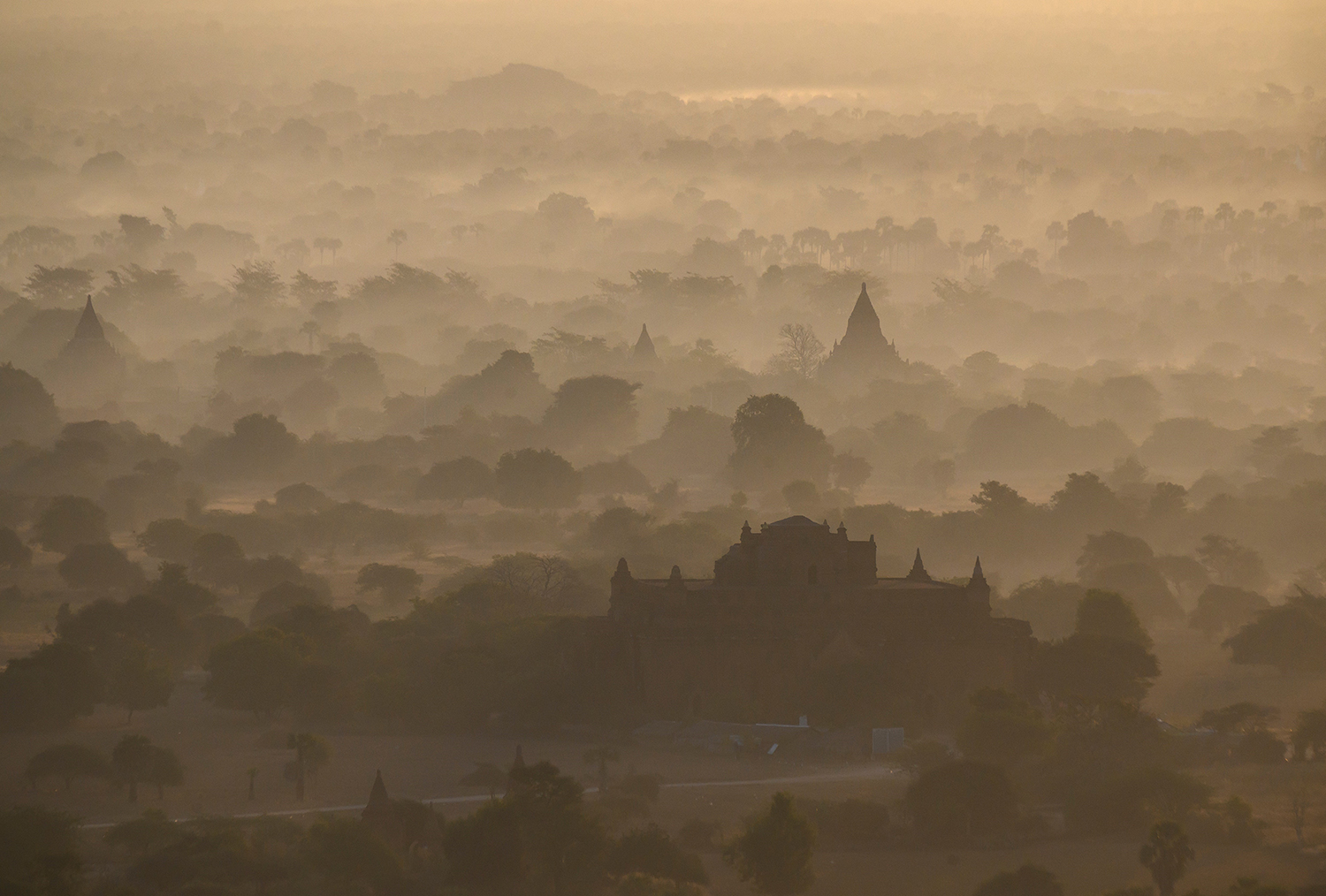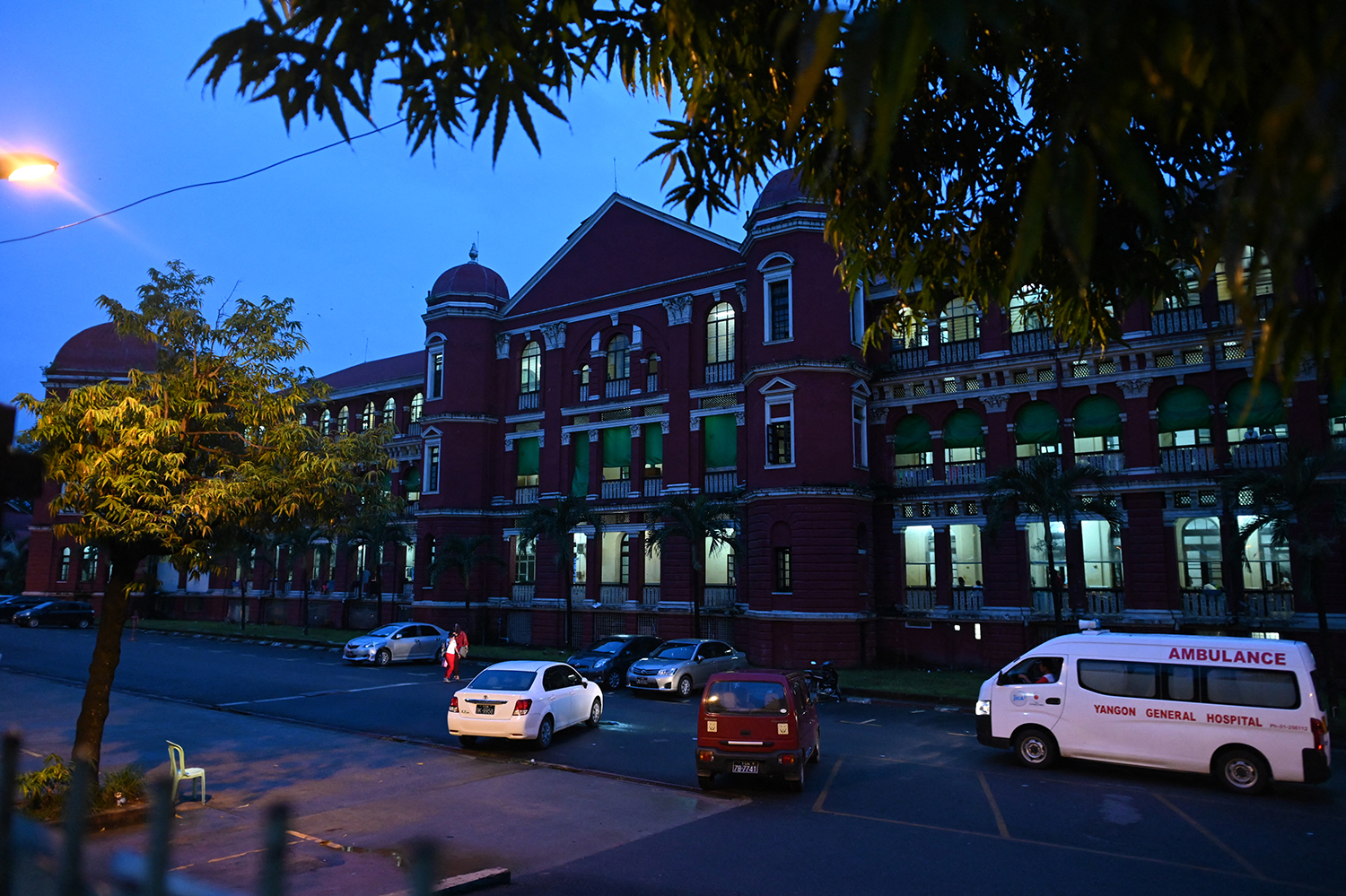There was a time when Myanmar’s anti-graft body was accused of lacking teeth but, under the National League for Democracy government, it has begun to catch big fish.
By SITHU AUNG MYINT | FRONTIER
AFTER MYANMAR enacted an Anti-Corruption Law in August 2013 under the Union Solidarity and Development Party government, there were doubts that it would be effective in tackling graft. In the following years the doubts continued to grow, with the government having little to show in terms of tackling the menace.
The situation began to improve after the National League for Democracy took office in early 2016 and U Aung Kyi, a widely respected former general and minister in the USDP government, was appointed to chair the 15-member Anti-Corruption Commission. The 2013 Anti-Corruption Law was amended for a fourth time in 2018 and there have since been some notable successes in tackling graft, including among high-level officials.
In January 2018 at an event jointly hosted by the ACC and the United Nations Office on Drugs and Crime, the eminent economist U Myint said more high-level public servants, or “big fish”, needed to be caught for the people to have confidence in the ACC. Aung Kyi replied that unless the law was amended it was virtually impossible to arrest big fish and the ACC was only able to catch low-level officials.
Under amendments to the Anti-Corruption Law enacted in June 2018, the powers of the ACC were broadened, and included being given the authority to determine that a person had a reputation for corruption and to launch investigations based on prima facie evidence of corrupt behaviour.
Support more independent journalism like this. Sign up to be a Frontier member.
In September 2018, the ACC began catching big fish; a month-long investigation resulted in the arrest of the chief legal officer of Yangon Region, a district court judge and four others, over allegations involving the payment of bribes totalling K72 million to have murder charges withdrawn against three suspects accused of beating to death a celebrity comedian on New Year’s Eve 2017.
The trial continues of former Yangon Advocate General U Han Htoo, judge U Aung Kyi from Yangon Eastern District Court, Yangon Eastern District law officer U Ko Ko Lay and deputy law officer Daw Thit Thit Khin, Police Lieutenant Chit Ko Ko from Thuwunna police station and Yangon Region law officer U Thein Zaw.
In mid-March, the ACC announced charges of corruption and bribery against Tanintharyi Region Chief Minister Daw Lei Lei Maw, a member of the NLD, and three directors of Global Grand Services Co.
The allegations against Lei Lei Maw, the first chief minister to be charged with corruption since the NLD took office, include that she sold a two-storey house valued at about K32 million to Global Grand Services for K200 million, in return for awarding the company construction contracts in the region.
On April 3, the ACC filed charges against three directors of the controversial National Prosperity mining company for having falsely accused civil servants of corruption.
An ACC statement said NPC managing director U Tun Aung Soe had asked the commission to investigate the alleged illegal extraction of gold and other minerals by public servants in large mining blocks at Moehti Moemi in Mandalay Region’s Yamethin Township.
The ACC found that the complaint was made with intent to defame the reputation of the civil servants.
The biggest case investigated by the ACC so far involves five senior officials of the Directorate of Water Resources and Improvement of River Systems who are alleged to have misappropriated K537 million since 2014.
In a statement on April 10, the ACC said charges had been filed against the directorate’s director-general U Htun Lwin Oo, adviser and retired deputy director-general U Ko Ko Oo, his successor, U Thaung Lwin, and two directors, U Aung Kyaw Hmu and U Tun Naing Win.
The ACC alleges that they misused K238 million in 2014, K89 million in 2015, K129.5 million in 2017 and K81 million in 2018.
Corruption is deep rooted in Myanmar. Under military rule, it thrived among the generals and from the top to the bottom of the bureaucracy, because of the need for higher offices to approve the work of subordinate offices, and there was no concerted action to stop it.
For example, in the Internal Revenue Department, township officers collect tax from taxpayers after negotiating the payment. The officer demands, let’s say, a 60 percent tax on the income of an individual or business. Out of this sum, he take two thirds for himself and only a third is paid to the state. But he has to get the approval of higher offices, and for this he pays superior offices out of his own take. Only then are his papers approved.
Under the NLD government, such system of corruption involving all administrative levels, and in which virtually everyone is complicit, has stopped in some departments, but it remains in others. The Directorate of Water Resources is one of them.
However, although the ACC has made significant progress in tackling graft since the Anti-Corruption Law was strengthened last June, it has not been able to expose what Aung Kyi has called “grand corruption”, involving the theft of the nation’s natural resources, including water and sand from rivers and minerals from the earth.
Nonetheless, through exposing multilevel corruption in departments, corruption at lower levels of the bureaucracy is no longer second nature. The soliciting of bribes and embezzlement of funds have become practices to be ashamed of, and to fear being caught doing. Where it is still done, it is now done much more furtively. For this, the ACC deserves applause.







